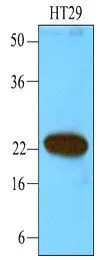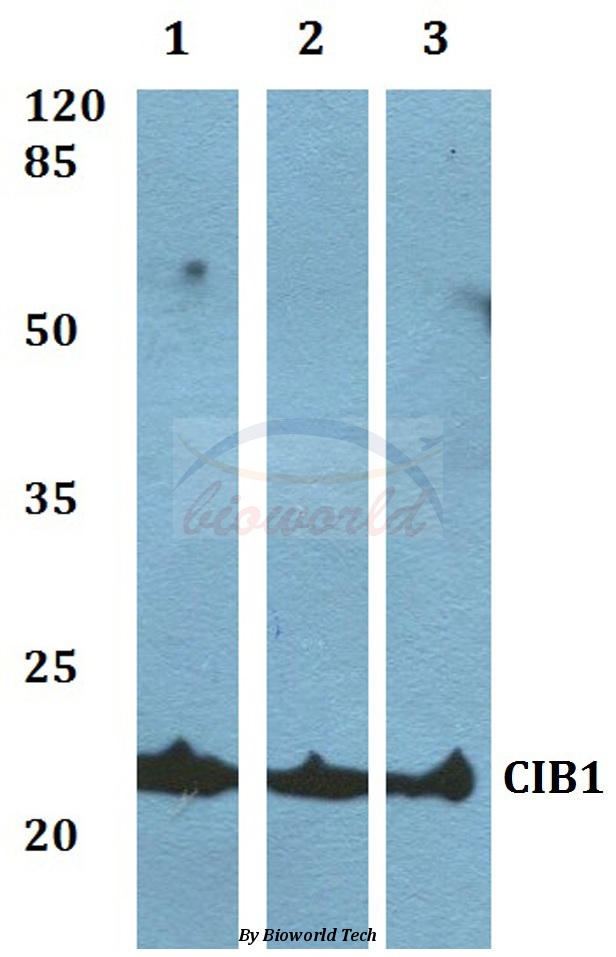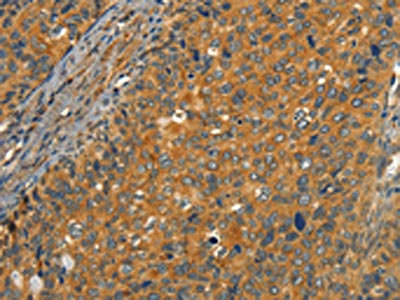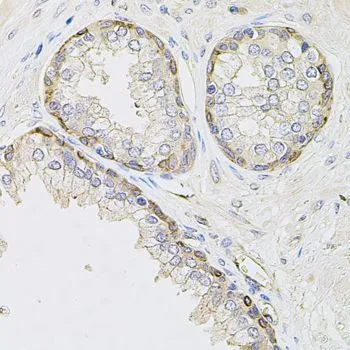
WB analysis of HT29 (40ug) using CIB1 at a dilution of 1:1,000.
CIB1 antibody [1D1]
GTX53699
ApplicationsWestern Blot, ELISA
Product group Antibodies
ReactivityHuman
TargetCIB1
Overview
- SupplierGeneTex
- Product NameCIB1 antibody [1D1]
- Delivery Days Customer9
- Application Supplier NoteThe antibody has been tested by ELISA and Western blot analysis to assure specificity and reactivity. Since application varies, however, each investigation should be titrated by the reagent to obtain optimal results. Recommended dilution range for Western blot analysis is 1:1,000 ~ 2,000. Recommended starting dilution is 1:1,000.
- ApplicationsWestern Blot, ELISA
- CertificationResearch Use Only
- ClonalityMonoclonal
- Clone ID1D1
- Concentration1 mg/ml
- ConjugateUnconjugated
- Gene ID10519
- Target nameCIB1
- Target descriptioncalcium and integrin binding 1
- Target synonymsCIB, CIBP, EV3, KIP1, PRKDCIP, SIP2-28, calcium and integrin-binding protein 1, DNA-PK interaction protein, DNA-PKcs-interacting protein, DNA-dependent protein kinase interacting protein, SNK-interacting protein 2-28, calcium and integrin binding 1 (calmyrin), testicular secretory protein Li 9
- HostMouse
- IsotypeIgG2b
- Protein IDQ99828
- Protein NameCalcium and integrin-binding protein 1
- Scientific DescriptionThis gene encodes a member of the EF-hand domain-containing calcium-binding superfamily. The encoded protein interacts with many other proteins, including the platelet integrin alpha-IIb-beta-3, DNA-dependent protein kinase, presenilin-2, focal adhesion kinase, p21 activated kinase, and protein kinase D. The encoded protein may be involved in cell survival and proliferation, and is associated with several disease states including cancer and Alzheimers disease. Alternative splicing results in multiple transcript variants. [provided by RefSeq, Apr 2013]
- ReactivityHuman
- Storage Instruction-20°C or -80°C,2°C to 8°C
- UNSPSC41116161







